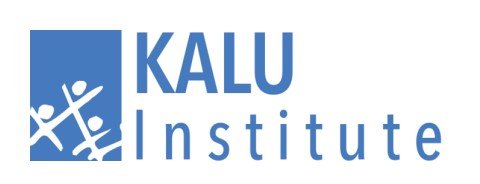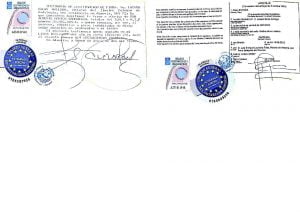
Master’s in International Cooperation and Humanitarian Aid
Course also available in French
Duration: 1.500 hours – one year (48 units).
Start date: September 24, 2024
Course language: English
Methodology: Online with tutor
- Regular fee: 1900 Euros
- Reduced Fee “One-off payment”: 1615 Euros
- Reduced Fee “Grant 60 & one-off payment”: 645 Euros
Project Management I: Logical Framework Approach
- The Logical Framework Approach
- The Project Cycle, Indicators and External Factors
- The Results-Based Management (RBM) and the Theory of Change (ToC)
Project Management II: Project Management and Implementation
- Accountability
- Needs Assessment
- Abbreviated Project Documents
- Monitoring the emergency project by means of Reports
- Monitoring long term projects by means of AOPs and Reports
- Coordination: Coordination of Activities & Coordination among Institutions
- Fundraising
- Methodological Documents
Film Forum: The Yugoslav Wars
Project Management III: Missions and Offices in the field
- Administration and budgeting: Administrative regulations of an international donor & European Union
- Humanitarian Aid project contract management regulations – ECHO FPA
- Human Resources Management
- Staff security in field operations and conflict zones
- Logistics
Sectors of Humanitarian Response, the Sphere Project and the UNHCR Emergency Manual I
- Food Security, Nutrition and Livelihoods
- Public Health
- Water and Sanitation
- Design of temporary shelter and Refugee Camps.
Sectors of Humanitarian Response, the Sphere Project and the UNHCR Emergency Manual II
- Cash transfer
- Humanitarian Protection
- Advocacy
- Education in emergencies.
The international legal framework
- Origin of current humanitarianism and international legal framework for humanitarian action
- International Human Rights Law
- International Humanitarian Law
- Legislation on refugees and internally displaced people, and Disaster response legislation
Film Forum: The origins of current Humanitarianism, the creation of the Red Cross and International Humanitarian Law
Cross cutting approaches
- The Gender-Sensitive Approach and Humanitarian Programmes
- Environmental issues
- Rights based programming
- Childhood and Youth
- Disabilities
- Building local capacities
Ethics in humanitarian work and in development cooperation
- Humanitarian identity and basic humanitarian principles
- Evolution of humanitarian principles
- Codes of Conduct
- Other initiatives to improve humanitarian programme quality
Film Forum: The genocide in Rwanda
Let’s talk about solidarity
- Wealth and poverty
- Development: Theories and Measurement
- Cooperation strategies
- Voluntary work
- The World Bank and the Poverty-Reduction Strategies
- Governance and Development
Disasters and risk management
- Natural disasters as global phenomena
- The reduction of risk as a necessary approach
- Types of disasters
- Learning to Manage Disasters
“Grant 60”:
A bursary equivalent to a 60% reduction in the course fee will be granted to citizens of countries with low-income economies (according to the World Bank)
- Evidence required: ID or Passport
In other words, you can pay under Bursary 60 conditions if your country IS NOT listed here as a high-income economy.
The Teaching staff are:
- A Director of Studies, to deal with learning and administrative issues
- A team of humanitarian workers in charge of debates within the thematic forums as Guest Experts
- A Final Assignment Tutor, giving personal guidance when developing the assignment
- A Technician to give support with the virtual classroom
Master’s students can get the following certificates:
- Master’s degree. Upon successful completion of all course’s activities.
- Master’s certificate with final grade and description of course contents.
And after completing each module:
- Course certificate “The international legal framework”
- Course certificate “Gender and cross cutting approaches”
- Course certificate “Ethics in humanitarian work and in development cooperation”
- Course certificate “Let’s talk about solidarity and cooperation”
- Course certificate “The Millennium Development Goals in Development Projects”
- Course certificate “Disasters and risk management”
- Course certificate “Project Management I: Logical Framework Approach”
- Course certificate “Project Management II: Project Management and Implementation”
- Course certificate “Project Management III: Missions and Offices in the field”
- Course certificate “Sectors of Humanitarian Intervention, the Sphere Project and the UNHCR Emergency Manual”
Our courses use an e-learning methodology based on socio-constructivist pedagogy. Proponents of Constructivist Learning believe that knowledge is developed or ‘constructed’ in the mind of the student through collaborative learning processes rather than being merely passed on through traditional text books and teacher-to-student teaching methods.
Selected elements of our methodology are explained below:
- Learning takes place in a Virtual Classroom, available 24 hours a day, 7 days a week, accessible by internet from anywhere.
- Once in the classroom the student will find general information about the course as well as the course subject material with accompanying exercises and support documents.
- The training process for each of the topics draws on the following tools and materials.
- Learning objectives
- Presentations and videos
- Selection of official documents from the United Nations, NGOs and official cooperation organizations, with study instructions.
- Summary of key messages.
- Bibliography
- The evaluation system consists of:
- Online exams
- A final assignment and/or research and development activities: Specific exercises regarding case studies and key questions.
- The learning process is supported by the set up of debate forums for all topics.
All the students cover the same topics within the same timeframe, but each student works through the course materials at his or her own pace. This enables forums to be interesting and relevant, and often provokes discussion between students of a similar advanced level. The intrinsic flexibility in these courses means that, if necessary, students can interrupt their studies for periods of time, for work or other reasons. When this happens, they are recommended to restart at the same stage as the rest of the group and to gradually cover missed material with the support of the tutor.
99% of students recommend this course, and 93% of them identify themselves with this statement:
“This course has definitely strengthened me.
And my capacity to continue working or find work in humanitarian aid has increased.”
Review here the full report of students’ feedback.


